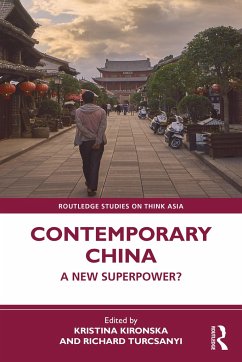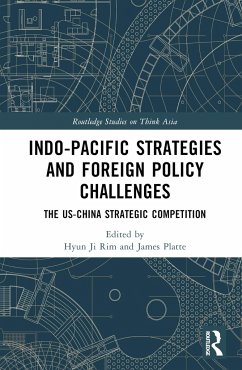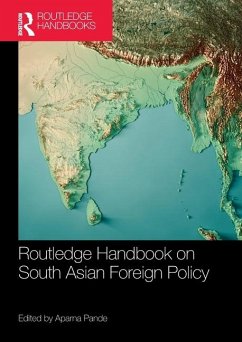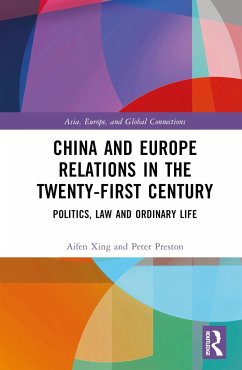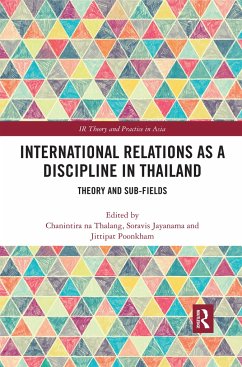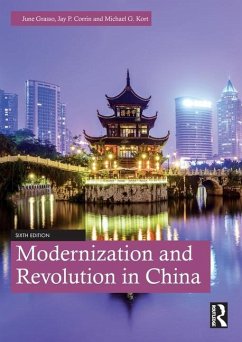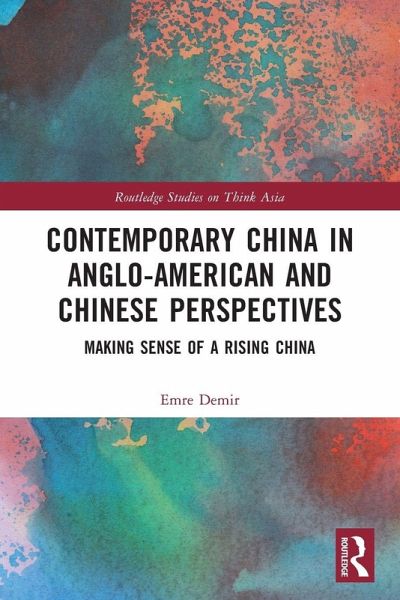
Contemporary China in Anglo-American and Chinese Perspectives
Making Sense of a Rising China
Versandkostenfrei!
Versandfertig in 6-10 Tagen
41,99 €
inkl. MwSt.
Weitere Ausgaben:

PAYBACK Punkte
21 °P sammeln!
This book identifies differing approaches to the issues of conceptualising hegemony, hegemony-building processes and the relationship between a hegemonic state and a rising power. It focuses on transformations of the Chinese state, society and political-economy, China's rapidly ascending status in the world order and changing relations with the outside world, in particular with the US.Bringing together mainstream and critical approaches from Anglo-America and China, which occupy different positions in the core-periphery structure of social sciences knowledge production and provide diverging st...
This book identifies differing approaches to the issues of conceptualising hegemony, hegemony-building processes and the relationship between a hegemonic state and a rising power. It focuses on transformations of the Chinese state, society and political-economy, China's rapidly ascending status in the world order and changing relations with the outside world, in particular with the US.
Bringing together mainstream and critical approaches from Anglo-America and China, which occupy different positions in the core-periphery structure of social sciences knowledge production and provide diverging standpoints to understanding the phenomenon of a rising China, the book questions the existing division of labour in IR and in general social sciences knowledge production. Through the lenses of multiple Anglo-American and Chinese scholars, it offers a nuanced and multifaceted view on the issue and focuses on a direct comparison of different localized perspectives. The author scrutinizes the heterogeneity of knowledge, the relationship between power and knowledge production and the region-centricity, in particular the Western-centricity, of knowledge production by analysing the discourse on the "(re-) rising" status of China in the world. The book problematizes the close link between power and knowledge production and presents a more critical view on the conclusions drawn by each approach.
Offering an understanding of the nexus between knowledge production and power structures, the heterogeneity and multiplicity of knowledge and the influence of locality on the knowledge produced in social sciences, the book will be of interest to academics working in the fields of International Relations theories, critical approaches, non-Western theories, Euro- or Western-centrism, and social sciences in China, Area Studies, in particularly China and East Asia.
Bringing together mainstream and critical approaches from Anglo-America and China, which occupy different positions in the core-periphery structure of social sciences knowledge production and provide diverging standpoints to understanding the phenomenon of a rising China, the book questions the existing division of labour in IR and in general social sciences knowledge production. Through the lenses of multiple Anglo-American and Chinese scholars, it offers a nuanced and multifaceted view on the issue and focuses on a direct comparison of different localized perspectives. The author scrutinizes the heterogeneity of knowledge, the relationship between power and knowledge production and the region-centricity, in particular the Western-centricity, of knowledge production by analysing the discourse on the "(re-) rising" status of China in the world. The book problematizes the close link between power and knowledge production and presents a more critical view on the conclusions drawn by each approach.
Offering an understanding of the nexus between knowledge production and power structures, the heterogeneity and multiplicity of knowledge and the influence of locality on the knowledge produced in social sciences, the book will be of interest to academics working in the fields of International Relations theories, critical approaches, non-Western theories, Euro- or Western-centrism, and social sciences in China, Area Studies, in particularly China and East Asia.





